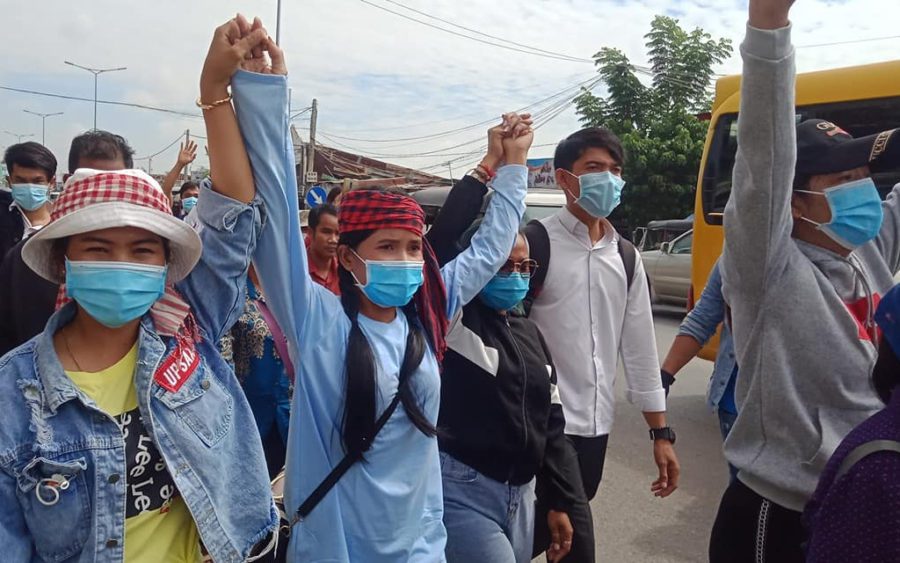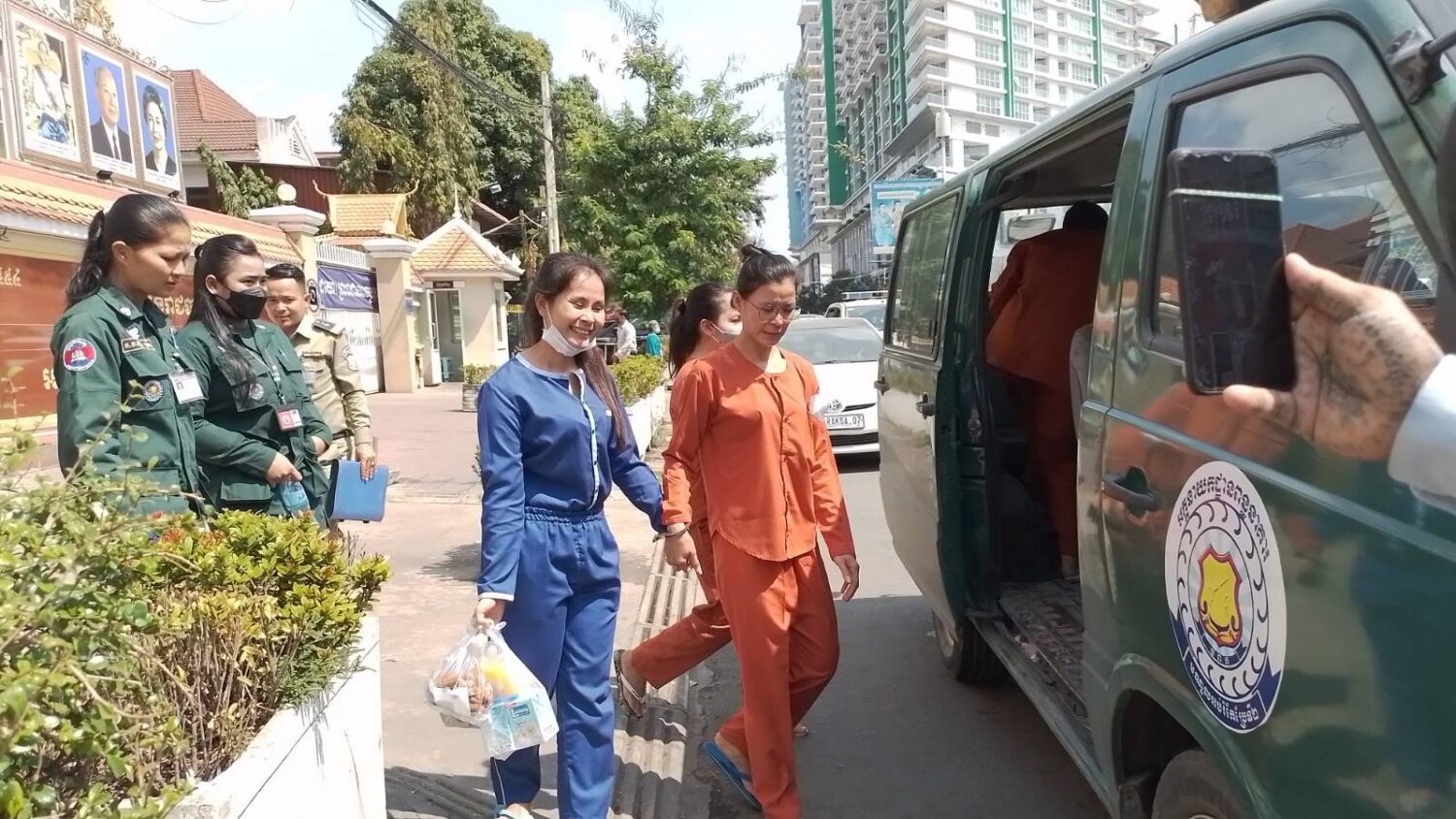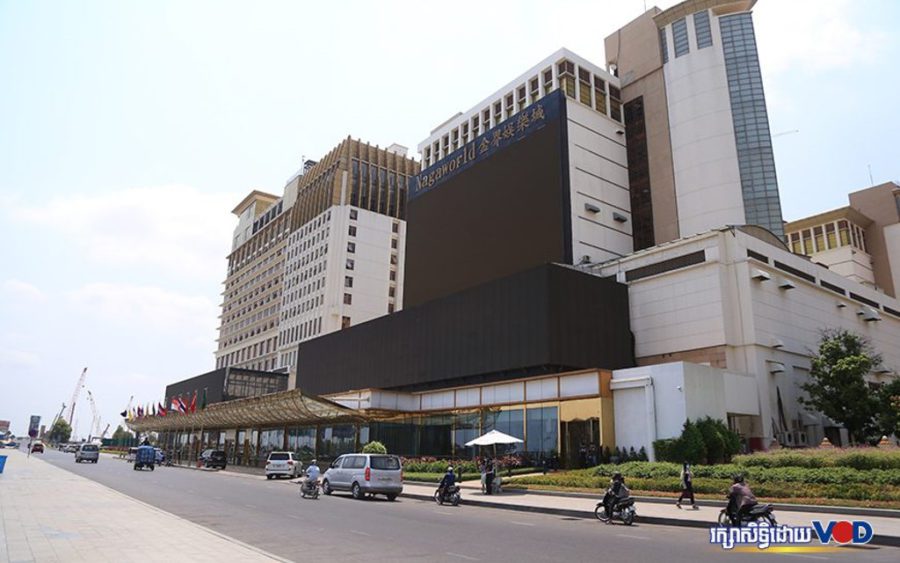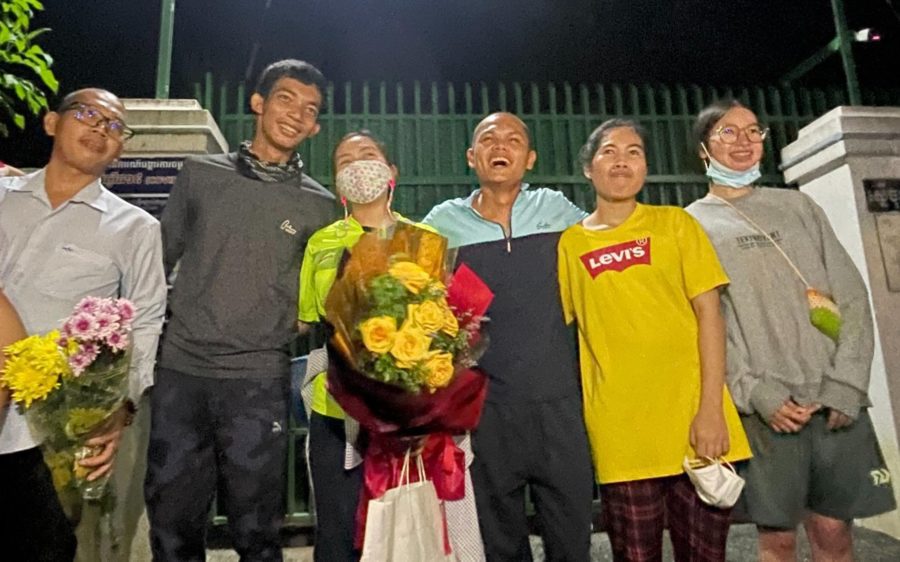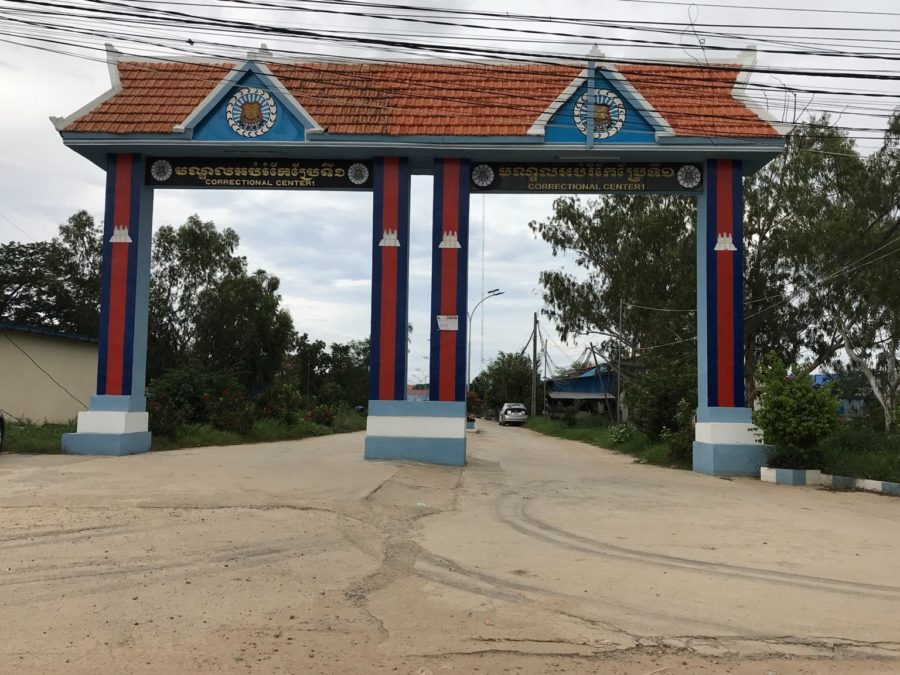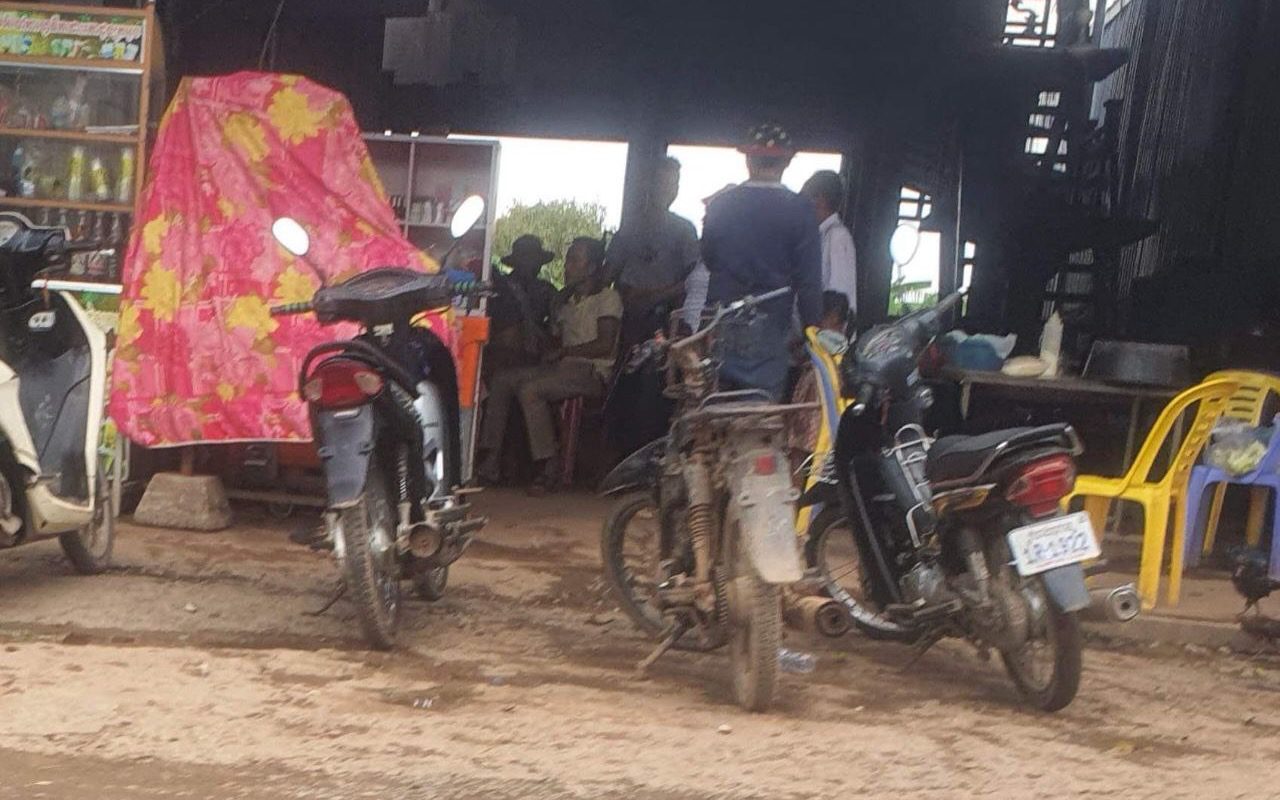Youth activists who were charged with incitement over their participation in protests for the release of jailed unionist Rong Chhun defended their innocence in their second trial hearing on Tuesday, saying their actions amounted to freedom of expression.
Phnom Penh Municipal Court judge Tith Sothy Borachhard continued the trial following a delay of about five months due to Covid-19 concerns, and questioned four more youth activists out of 15 total defendants in the case. Five of the defendants were not detained as of February.
Tha Lavy, 20, Eng Malai, 34, Muong Sopheak, 27 and Koet Saray, 30, were questioned on Tuesday. Lavy, Malai and Saray are members of activist group Khmer Thavrak. They were arrested last year for protests in support of Chhun, who was jailed for raising nationalistic allegations of Cambodia ceding land to Vietnam, a long-standing, racially tinged issue.
Under questioning, the four defendants denied the incitement charges against them. They said they had voluntarily participated in the protests, and rejected allegations that officials from the outlawed CNRP — formerly the country’s main opposition party — had given them instructions and funds. CNRP officials Ho Vann, Ou Chanrith and Kong Saphea, as well as former Australian MP Hong Lim, are also defendants in the case.
Lavy, a student from Battambang province, said he had participated in four or five protests.
“Did anyone advise or order you?” deputy prosecutor Sam Rithy Veasna asked.
Lavy said: “It came from my heart and love for Rong Chhun. I know his background. There is nothing aside from myself that urged me to do it.”
Lavy said he did not know the other protesters, though he acknowledged he had asked City Hall for permission to protest with about 10 participants.
“You said you cannot contact those 10 people. Why did you have to ask for permission?” Rithy Veasna asked.
Lavy answered that the total was based on his estimates from previous protests, and said the law allowed for protests up to 200 people.
“I think that what I did was not wrong. Look at other democratic countries: People have the right to protest,” Lavy said under questioning from his lawyer, Sam Chamroeun. “I was not coerced by anyone. It was my will. I don’t regret it.”
Another defendant, Malai, from Tbong Khmum province, said she was one of five arrested Khmer Thavrak members, alongside Lavy, Saray, Chhoeun Daravy and Hun Vannak.
She was a cook who joined the group in 2020, she said.
Malai denied personally knowing any CNRP officials, and said the aim of participating in the protests was to ask the courts to release Chhun.
“He was an individual who helped people, teachers, workers,” Malai said. “He paid attention to help people.”
She denied receiving orders from anyone. “I did it as a citizen. I have rights under the Constitution. Whenever there is injustice, we have to help each other.”
“It was peaceful expression. I am excited and have no regrets,” Malai said. “I am excited and happy. I fulfilled my duty as a citizen.”
Sopheak, a second-year accounting student, said his only participation in the protests was having coffee once across from the municipal courthouse. He did not hold any banners or shout.
“I just came to look. I was interested and I am a youth. I like social work,” the 27-year-old said. “No one ordered me. It was my will. I like to monitor social issues, understand the truth in society.
Saray, the last to be questioned, recalled his defrocking from the monkhood after his arrest.
“From the beginning to the end, I don’t accept this charge because I committed nothing wrong,” Saray said.
He was in Battambang at the time of the protests and did not participate, but he made a live Facebook broadcast to air his views on Chhun’s arrest, he said. He later came to Phnom Penh, where he was arrested.
“Do you know that your live video will lead to chaos in society?” judge Sothy Borachhard asked.
“As a citizen, when we see what is right, we say it is right. When we see it is wrong, we say it is wrong. Like a child, when he is hungry, he will shout that he is hungry,” Saray answered. “I was a monk. I don’t demand any life, I was in a monkhood since I was a child. … My aim is to study and I want the country to have justice.”
Speaking outside the court after observing the more than two-hour morning hearing, San Mala, an advocacy officer at the Cambodian Youth Network, said the youth activists had stood up for social justice, and there was no violence or social insecurity.
“Within this last period of time, I have seen that youth groups, including youth working on environmental issues, are becoming the new targets of arrests and are restricted from expressing themselves,” Mala said. “Youth are a group with bravery, without hesitation, and continue to be a presence in advocacy, especially in giving interviews with the media. That’s why they want to block these voices.”
Asked whether he was concerned for his own safety, Mala said he did not feel safe.
However, “it is an important component in helping the government to implement its work effectively,” he said. “I think this country belongs to all Cambodians. It is not under the sole ownership of anyone. So, want it or not, everyone has the right to talk.”
“We cannot restrict others from talking or try to block the voices of others who criticize our work as law enforcement or in leading the country,” Mala said.
Judge Sothy Boracchard scheduled the next trial hearing for August 31.


